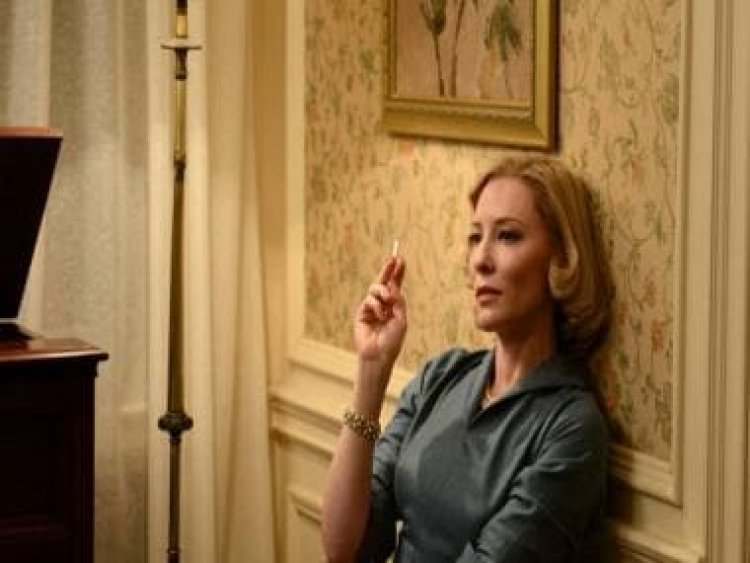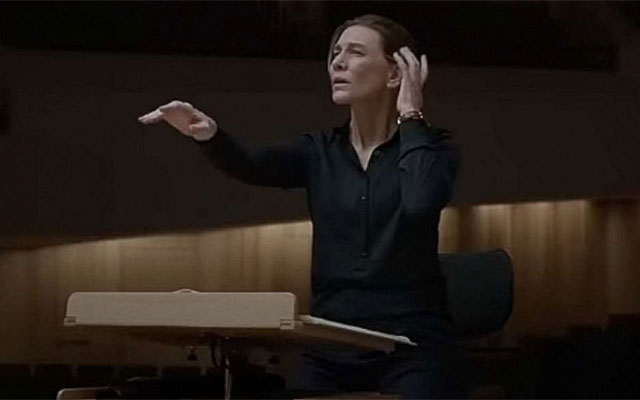Tar Review: Cate Blanchett is in imperious form in one of the best films of the year
Tar Review: Cate Blanchett is in imperious form in one of the best films of the year

“The architect of your soul seems to be social media”, Lydia says, rather rudely, to a young student as he storms out of her class. It’s a chastening sequence, illustrative of the maverick conductor’s hubris and pride. She’s cold without being animated, competitive without ever exhibiting that discernible edge. Todd Field’s Tar is a familiar story about difficult artists, but in the hands of the reclusive director, it perpetuates an icy, morbidity around human ambition. No amount of perfection, the film says, can paper over desire, guilt or envy. Not for yourself at least. It’s also a film that re-establishes the fact that Cate Blanchett, might well be the greatest actor of our generation.
Referred to as ‘maestro’ by her subjects, Lydia Tar is the chief conductor of a German Orchestra. Revered and feared in equal measure she has the air of easy genius, someone who makes high-art look impressively, mundane. Blanchett unbuttons the top collar of her shirt, and disappears into a tight suit that reflects the sharpness of her conceit. There is so much to like on the looks of it, yet so much to suspect beneath it. Tar is slated for both, glory and doom. She is paranoid and heady about her future at the same time. Blanchett is bewitching, as icy as the conductor’s baton is delicate.
A popular episode from the sitcom Seinfeld, comes to mind, where a conductor repeatedly requests his friends to call him maestro. Headiness and hubris, therefore are part of the territory here. To the average viewer, though a lot of the musical science being discussed might not make sense, the emotional well of this atypically cold film feels as accessible as the last song on your playlist. For this woman has skeletons in her closet, a rumoured assembly line supply of young would-be conductors she has salacious affairs with, a doomed romance of her own and a young protégé she actively pushed to the edge – fatally, it turns out. Despite her steely nonchalance, guilt, shame and insecurity chip away at Blanchett’s perfectly carpentered shoulders, unfurling a complex personality that can’t help but consume others around her.

While Tar concerns itself with modern dialogue around ‘Cancel Culture’, and the idea of accepting difficult artists, its chief provocation may yet lie in its texture of suspense. Tar is consumed by the idea of being watched, the risk of overexposure that also becomes her way of life. Her dynamic with her next door neighbour is painted as a hellish vision of forced socialisation, a boundary-breaking act of superficial indignity. Tar’s relationship with her assistant, played by the excellent Noémie Merlant, is a dynamic that quietly inserts itself into the bloodstream of the film without being provocative in an obvious way. Tar’s dependence on her is implied casually, as opposed to more sinister methods that might colour her as evil. She’s mean, condescending, self-interested, but also possesses the tacit grace of a mercenary who has read far too many books about murder.
Unlike cinema’s other difficult bosses or artists, Tar is perpetually unhinged and approaching disintegration at cautious speed. She never quite goes up in flames, but her descent is enthralling and subtly coded into the patterns of her life. She loses sleep, satisfaction in work, even friends and lovers. But to her the prestige of her career, somewhat papers over the cracks. It’s also a painfully grim view of the life of an artist, the duopoly of showcasing the mastery of creating something life-like while succumbing to an aspect of life itself. As good as Lydia Tar is with music and conducting, her life is chaotic and fragile. A way out would be to embrace it, but that simply isn’t who she is – privileged, principled and petty at the end of it all.
Tar is built on the familiar premise of greatness being born in social perjury, the effective idea that perhaps the most key component in achieving measurable greatness, is the empirical display of control and conviction. Life, though, can never really be controlled, nor can human will be bestowed with the regiment of scripture. The only thing biblical about the pursuit of any art, is the person’s destiny to both try and fail the test of time. Whether it is as memory or as a vehicle for the future. Cate Blanchett is in the form of her life here, turning a deliriously despicable character into the most fascinating personality on screen in recent times. For Tar goes far beyond the rudeness, the criminality of bespoke lies. It urges the viewer to also view the artist as a sexual being, a person rivalled by desire and dread as much as he or she is unrivalled by peers and talent. It’s never just the job, as hard as we might work to make life around it.
Manik Sharma writes on art and culture, cinema, books, and everything in between.
Read all the Latest News, Trending News, Cricket News, Bollywood News, India News and Entertainment News here. Follow us on Facebook, Twitter and Instagram.
What's Your Reaction?



























































